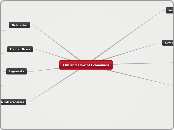Ebb and Flow of Economics
interventionism
keynes supports this theory because he values economic intervetion by the government. the government enacts social programs to help the people in need of economic help. this ideology is not supported by and of right sided economical thinkers this is the opposite to capitalism. its taking communist viewpoints without the radicalness
Keynesian economics
keynes thinks that if the government regulates the economy and doesn't allow the big busts and booms this will create a stable prospering economy.
stagflation
this occurs when a supply of a needed good is reduced and fights for this good are high. inflation skyrocks.
monetarism
coined by the work of many individuals but milton friedman was associated this ideology. the basis behind this ideology is that it all about money control and the governments intervention. this wouln't work if it wasn't run by the government. it effectsthe growing nature of inflation and keeps it to a minimum.
Thatcherism
margret thatcher thought with lwass governmetn funding that the economy would prosper. she deregulated and privatized many industries this had a huge negetive effect on the britsh economy.
Friedrich Hayak
hayak believed in free market economics, this caused major unbalances in the economy, it caused extremes when boom and busts happened.
Reganomics
Reduce the growth of government spending
Reduce income tax and capital gains tax
Reduce government regulation of economy
Control money supply to reduce inflation
this caused a huge decline in the united states economy allowing ronald reagan to be in power lead to the massive amount of deficit the government had. Reagan spent money on the military and doubled the USA deficit budget in 8 years.
trickle down theory. this was coined by ronald when he got in to power he thought that if he ruduced taxes on corporates and industries this would trickle down to the poor this was not the case this caused a bigger gap between the poor and the weatlhy.
supply side economics
coined itn the mid 20th century. the theory behind it was that if you supplied a great number of goods at low prices and reduced income tax this benefiitted the economy by allowing people to spend money and recirculate.
